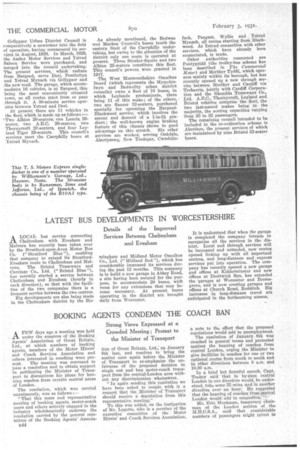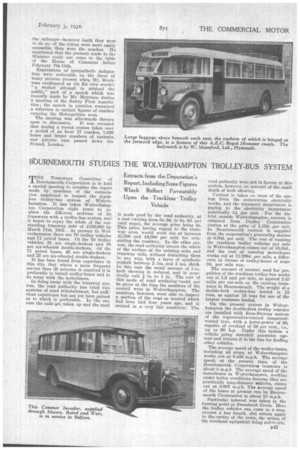BOOKING AGENTS CONDEMN THE COACH BAN
Page 62

Page 63

If you've noticed an error in this article please click here to report it so we can fix it.
Strong Views Expressed at a Crowded Meeting ; Protest to the Minister of Transport ANV days ago a meeting was held under the auspices of the Booking Agents' Association of Great Britain, Ltd., at which numbers of booking agents, members of the Motor Hirers' and Coach Services Association and others interested in coaching were pre
sent. The meeting was convened to pass a resolution and to obtain support in petitioning the Minister of Transport to discontinue his plans for banning coaches from certain central areas of London.
The resolution, which was carried unanimously, was as follows:— "That this mass and representative meeting of booking agents, motor-coach users and others actively engaged in the industry wholeheartedly endorses the resolution carried by the general committee of the Booking Agents' Associa
B44
tion of Great Britain, Ltd.; on January 8th last, and resolves to• bring the matter once again before the Minister of Transport to re-emphasize the unfairness of the proposed decision to single out and ban motor-coach transport from the central-London area without any discrimination whatsoever.
"In again sending this resolution we have been asked to couple with it a request that the Minister of Transport should receive a deputation from this representative meeting."
To this was added, on the instigation of Mr. Logette, who is a member of the executive committee of the • Motor Hirers' and Coach Services Association, a note to the effect that the proposed regulations would add to unemployment.
The resolution of January 8th was couched in general terms and protested against the banning of coaches from central London, urging the Minister to give facilities to coaches for one or two optional routes from north to south and in other directions between 8 a.m. and 10.30 a.m.
In a brief but forceful speech, Capt. Toohey said that to by-pass central London in one direction would, he understood, take some 55 mins. and in another direction over an hour: He suggested that the banning of. coaches from central London would add to cOngestion.
Mr. Eric Monkman, temporary chairman of the London section of the M.H.C.S.A., said that . considerable numbers of passengers might revert to the railways—however loath they Were to do so—if the trains were more easily accessible than were the coaches. He mentioned that the protests made to the Minister could not come to the table of the House of Commons before February 7th-lOth.
Expressions of sympathetic indignation were noticeable on the faces of many persons present when Mr. Monkman condemned as (in his own words) "a wicked attempt to mislead the public," part of a speech which was recently made by Mr. Morrison during a meeting of the Safety First Association; the speech in question contained a reference to certain figures of coaches entering the Metropolitan area.
The meeting was afterwards thrown open to discussion. It was revealed that during a recent census taken over a period of an hour 17 coaches, 1,020 buses and larger numbers of taxicabs. and private cars passed down the Strand, London.




































































































